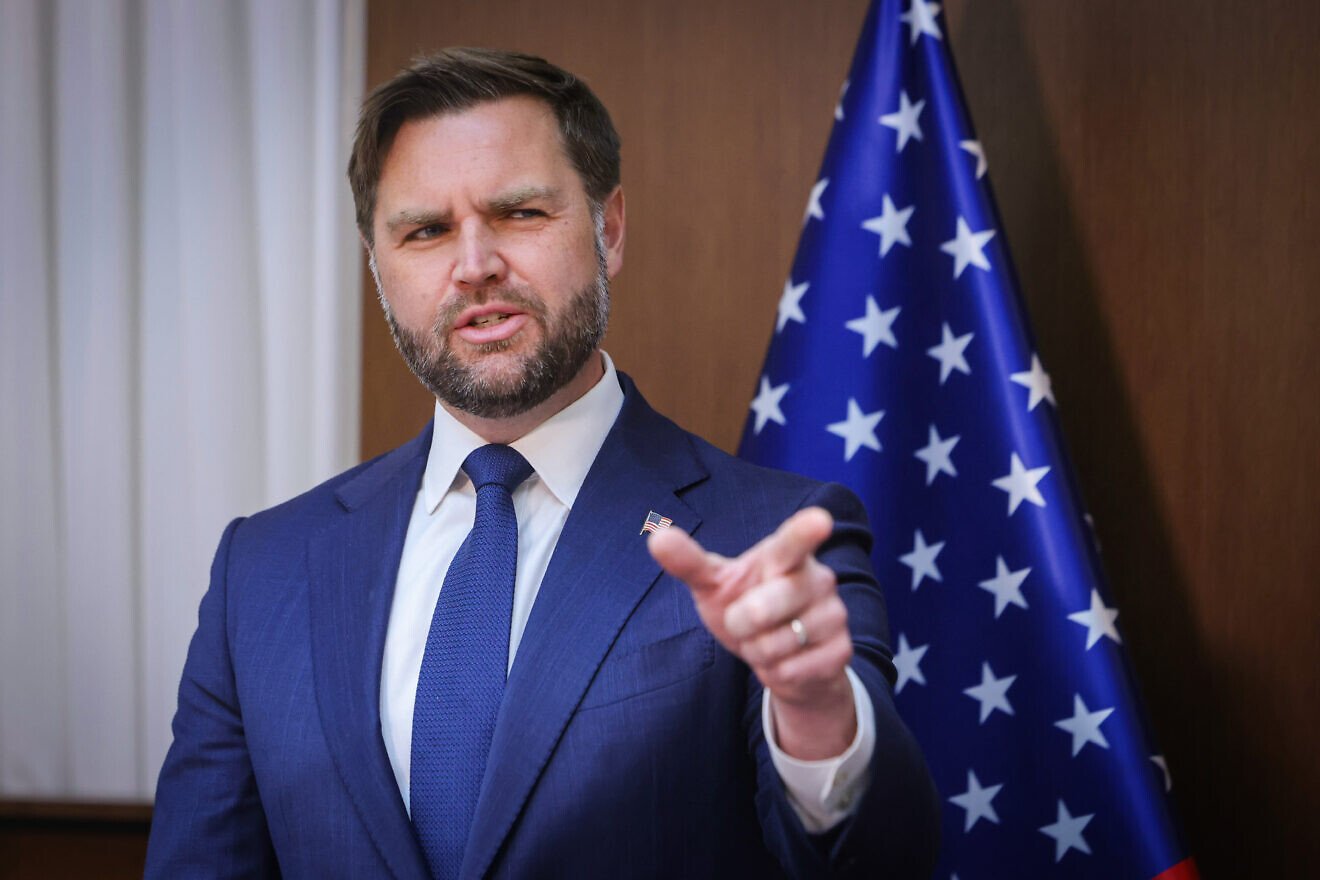Trump’s message to Israel: Be patient and smart
Visiting US officials have been dispatched not just to chart Gaza’s future, but to urge Israeli leaders to imagine a new kind of Middle East altogether.
By Fiamma Nirenstein
JNS
Oct 23, 2025
Advancing to the second phase of the Israel-Hamas ceasefire deal is not only in the interest of Israel or the Palestinians; it concerns the entire world.
U.S. President Donald Trump’s vision is that true peace in the Middle East will generate a ripple effect of stability reaching all the way to Europe. But before that can happen, the United States must reassert its strength where it matters most: in the Middle East itself.
That is why JD Vance, Marco Rubio, Steve Witkoff, Jared Kushner and others have arrived in Israel in recent days—not merely as political envoys, but as architects of a grand design.
Their goal is to weave together an unprecedented tapestry of cooperation, bringing in the Arab states, Turkey and key European partners. The spectacular setting of Sharm el-Sheikh has become the stage for this effort—not just to chart Gaza’s future, but to imagine a new kind of Middle East altogether.
Vance and Rubio have made it clear to Israel: peace is the goal and patience is essential. “You’ve had war for two years,” Vance reportedly told Israeli leaders. “This peace is only a week old. Give it time.”
Behind the scenes, the Americans are pressing Hamas to return the remaining 13 hostages, something everyone knows it could do, if it wished. The delay, however, is being used to push for Turkey and Qatar’s involvement in the next stage of the process—ostensibly to help recover bodies and oversee demilitarization, but also to carve out new spheres of influence.
Hamas is under intense pressure to surrender its weapons, as both Vance and Trump have warned that refusal could lead to its “obliteration.”
Yet the irony is glaring: the two Sunni states closest to Hamas, Turkey and Qatar, are also pillars of the Muslim Brotherhood network that nurtured it. For them, preserving Hamas’s weapons—or at least its leverage—fits perfectly within their shared hostility toward Israel.
Vance has nonetheless promised Israel that Turkey will not be permitted to position itself along Israel’s borders, a move that would undermine the process of deradicalization. As he pointedly noted, a leader who calls Israel’s prime minister a Nazi cannot be a credible peace partner.
At the same time, Trump remains adamant that Israel’s Knesset should halt its symbolic vote to annex Judea and Samaria, which surprised even Vance. “It won’t happen because I gave my word to the Arab countries,” Trump reportedly said in an interview with TIME on Oct. 15. “Israel will lose all of its support from the United States if that happened.”
It’s a warning that underscores the delicate balance Trump must maintain—between his deep affinity for Israel and his determination to complete “the ultimate deal.”
The majority of Israelis, meanwhile, have made clear that they reject a Palestinian state on their borders until radicalization is truly dismantled. Trump seems to share this caution. His vision now centers on creating a coalition of nations that will accept Israel as a legitimate regional partner, culminating in full normalization with Saudi Arabia—the beating heart of the next stage of the Abraham Accords.
Egypt’s role will be critical. Egyptian President Abdel Fattah el-Sisi detests the Muslim Brotherhood almost as much as Israel does, and his cooperation is key to stabilizing Gaza’s future. Yet even as the Knesset’s symbolic vote complicates Trump’s diplomacy, the opposite danger looms: that the European Union’s renewed insistence on a Palestinian state could derail everything.
Europe, too, must recognize the fragile opportunity before it. This is a moment that leaves no room for annexations—but also none for the establishment of another radical Islamist entity filled with hatred and terrorism.
The peace that Trump and his team are sketching is ambitious and risky —but in a region long defined by impossibility, even the hint of such a vision is already a revolution.

No comments:
Post a Comment